 Verizon Wireless, ignoring its agreement with the Federal Communications Commission not to lock handsets, will soon stop selling unlocked phones, at least temporarily preventing customers from taking their phones to another carrier or overseas without Verizon’s consent.
Verizon Wireless, ignoring its agreement with the Federal Communications Commission not to lock handsets, will soon stop selling unlocked phones, at least temporarily preventing customers from taking their phones to another carrier or overseas without Verizon’s consent.
Verizon’s ‘SIM Lockdown’ is expected to begin later this year in a move Verizon is calling a “theft control measure.”
Verizon Wireless is the only major carrier that does not lock its smartphones, but that policy was agreed to as a condition of its acquisition of 700 MHz spectrum licenses in 2008, which included a prohibition on phone locking. But Verizon seems to think its new locking policy doesn’t break any rules or that nobody will care.
“We’re taking steps to combat this theft and reduce fraud. These steps will make our phones exponentially less desirable to criminals,” Tami Erwin, executive vice president of wireless operations for Verizon, said in a statement to CNET.
After the change takes effect, Verizon Wireless customers will find their new handsets locked and unable to be used with other carriers until activated on a new or existing Verizon Wireless account. After that, Verizon says it will still keep the phone locked for an unspecified waiting period to prevent cell phone thieves from stealing a phone, activating it with a stolen identity, and then selling it for profit. Verizon won’t say exactly when customers will be able to get their devices unlocked.
With an industry friendly Republican majority on the Federal Communications Commission, Verizon may be attempting to test the waters to see if it can successfully walk away from its agreement with the FCC without penalty or even win itself a waiver. But FCC rules don’t appear to give Verizon the leeway it needs to unilaterally act:
§ 27.16 Network access requirements for Block C in the 746-757 and 776-787 MHz bands.(a)Applicability. This section shall apply only to the authorizations for Block C in the 746-757 and 776-787 MHz bands assigned and only if the results of the first auction in which licenses for such authorizations are offered satisfied the applicable reserve price.
(b)Use of devices and applications. Licensees offering service on spectrum subject to this section shall not deny, limit, or restrict the ability of their customers to use the devices and applications of their choice on the licensee’s C Block network, except:
(1) Insofar as such use would not be compliant with published technical standards reasonably necessary for the management or protection of the licensee’s network, or
(2) As required to comply with statute or applicable government regulation.
(c)Technical standards. For purposes of paragraph (b)(1) of this section:
(1) Standards shall include technical requirements reasonably necessary for third parties to access a licensee’s network via devices or applications without causing objectionable interference to other spectrum users or jeopardizing network security. The potential for excessive bandwidth demand alone shall not constitute grounds for denying, limiting or restricting access to the network.
(2) To the extent a licensee relies on standards established by an independent standards-setting body which is open to participation by representatives of service providers, equipment manufacturers, application developers, consumer organizations, and other interested parties, the standards will carry a presumption of reasonableness.
(3) A licensee shall publish its technical standards, which shall be non-proprietary, no later than the time at which it makes such standards available to any preferred vendors, so that the standards are readily available to customers, equipment manufacturers, application developers, and other parties interested in using or developing products for use on a licensee’s networks.
(d)Access requests.
(1) Licensees shall establish and publish clear and reasonable procedures for parties to seek approval to use devices or applications on the licensees’ networks. A licensee must also provide to potential customers notice of the customers’ rights to request the attachment of a device or application to the licensee’s network, and notice of the licensee’s process for customers to make such requests, including the relevant network criteria.
(2) If a licensee determines that a request for access would violate its technical standards or regulatory requirements, the licensee shall expeditiously provide a written response to the requester specifying the basis for denying access and providing an opportunity for the requester to modify its request to satisfy the licensee’s concerns.
(e)Handset locking prohibited. No licensee may disable features on handsets it provides to customers, to the extent such features are compliant with the licensee’s standards pursuant to paragraph (b)of this section, nor configure handsets it provides to prohibit use of such handsets on other providers’ networks.
(f)Burden of proof. Once a complainant sets forth a prima facie case that the C Block licensee has refused to attach a device or application in violation of the requirements adopted in this section, the licensee shall have the burden of proof to demonstrate that it has adopted reasonable network standards and reasonably applied those standards in the complainant’s case. Where the licensee bases its network restrictions on industry-wide consensus standards, such restrictions would be presumed reasonable.
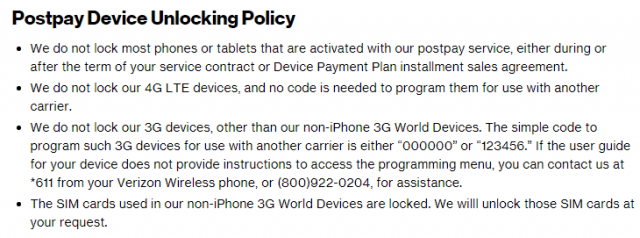
Verizon’s old unlocking policy.
Verizon does not need to lock phones to control stolen device trafficking. An earlier initiative by the wireless industry tracks stolen phone IMEI and other identification numbers that are needed to activate service. If a carrier gets a request to activate service on a phone or device with a suspect IMEI number, the carrier can refuse service, rendering the phone useless on the stolen goods market. But Verizon may have other motives in mind.
“This is going to make it harder for rivals to poach subscribers from Verizon,” Avi Greengart, an analyst at Global Data, told CNET, because customers bringing their Verizon smartphones to other carriers may find they cannot use them on the competitor’s network. The phones also won’t work if a customer travels abroad and uses a SIM card purchased in the destination country, which could offer substantially lower rates than Verizon’s international calling and data plans or roaming.
Few consumers would be willing to buy new phones for $600+ just to switch carriers, a fact Verizon is likely well aware will keep customers loyal to them.


 Subscribe
Subscribe C Spire, an independent wireless company providing service in the southern United States
C Spire, an independent wireless company providing service in the southern United States  The fiber network will be uncharacteristically placed in some of the most rural parts of the state’s push to redevelop its rural economy to support digital businesses. C Spire itself has been in transition over the last five years, diversifying its core cellular business into fiber to the home broadband, phone, and television service targeting underserved, smaller communities across the state.
The fiber network will be uncharacteristically placed in some of the most rural parts of the state’s push to redevelop its rural economy to support digital businesses. C Spire itself has been in transition over the last five years, diversifying its core cellular business into fiber to the home broadband, phone, and television service targeting underserved, smaller communities across the state.
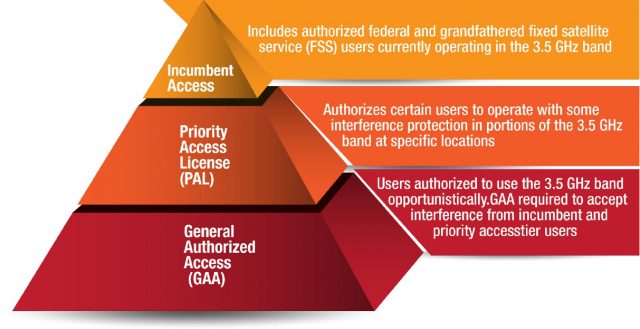
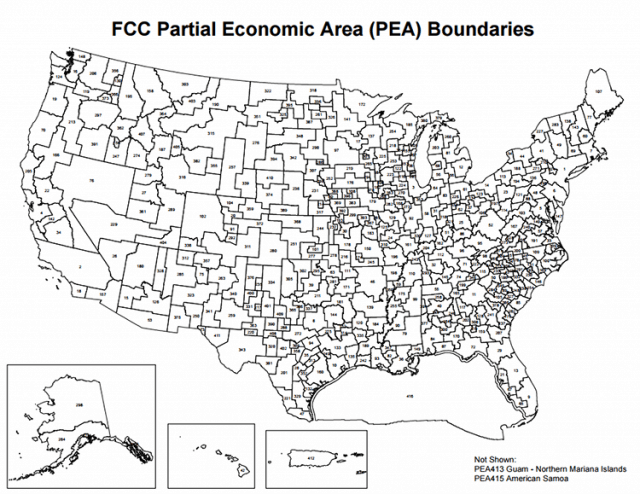
 Charter is proposing to license PALs based on county lines, not PEAs, which will likely reduce the costs of licensing and, in Charter’s view, will “attract interest and investment from new entrants to small and large providers.” If Charter’s proposal is adopted, its costs deploying small cell technology used with CBRS will be much lower, because it will not have to serve larger geographic areas.
Charter is proposing to license PALs based on county lines, not PEAs, which will likely reduce the costs of licensing and, in Charter’s view, will “attract interest and investment from new entrants to small and large providers.” If Charter’s proposal is adopted, its costs deploying small cell technology used with CBRS will be much lower, because it will not have to serve larger geographic areas.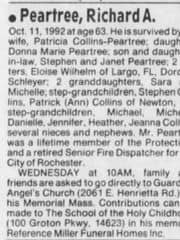
 So Mrs. Peartree and Spectrum are at an impasse. She took her plight to a local talk radio show and
So Mrs. Peartree and Spectrum are at an impasse. She took her plight to a local talk radio show and 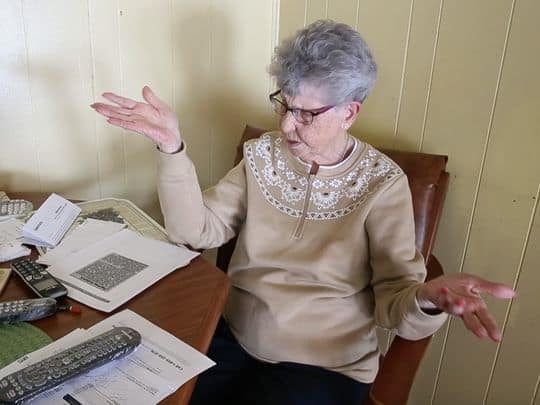

 West Plains’ fiber network has grown carefully over the last few years, both in terms of its reach and its capabilities. At the outset, the network offered 25/25 Mbps dedicated connections primarily to business customers. But where West Plains’ fiber loop passes residential homes, the city has also been willing to provide service to local homeowners as well.
West Plains’ fiber network has grown carefully over the last few years, both in terms of its reach and its capabilities. At the outset, the network offered 25/25 Mbps dedicated connections primarily to business customers. But where West Plains’ fiber loop passes residential homes, the city has also been willing to provide service to local homeowners as well.


